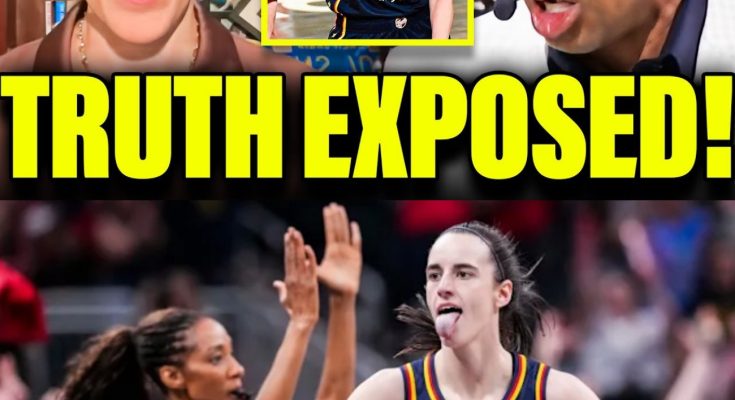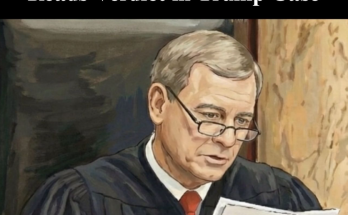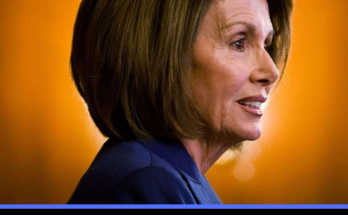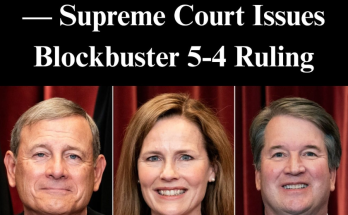The Caitlin Clark Conundrum: Are WNBA Refs and League Leadership Playing with Fire?
The rise of Caitlin Clark to WNBA stardom has transformed women’s professional basketball, not just as an athletic spectacle, but as a phenomenon redefining the league’s business, culture, and visibility. Yet as her star ascends, the league now faces a crisis of its own making—one that could jeopardize not just its new golden goose, but the surge of popularity women’s basketball is experiencing as a whole. At the heart of the storm is a problem few outside the league expected to hear called out publicly: inconsistent, dangerous, and sometimes outright negligent officiating.
This issue, once whispered about off camera, exploded onto center stage after the Indiana Fever’s recent string of bruising games—particularly against the Connecticut Sun and New York Liberty—where rough, often dangerous play against Clark was met with little to no response from referees. It’s a crisis so acute that WNBA legend and ESPN commentator Rebecca Lobo finally said the quiet part out loud: coaches and insiders across the league know officiating is turning into a threat to the very product the WNBA is selling.

The Caitlin Clark Effect: A League in Her Orbit
To understand the stakes, you need to grasp just how critical Clark has become. When she missed several games due to injury, league viewership and engagement plummeted—by some counts, as much as 50%. Her return didn’t just revive the Indiana Fever; it supercharged the entire WNBA, with a single Fever-Liberty game drawing 2.8 million viewers, more than the NHL’s Stanley Cup Finals average. In an era of fractured audiences, Clark’s presence is singular: she is the main event, the headline, the driver of jerseys, tickets, social media, and broadcast contracts.
As Lobo put it, “People are watching again.” The implication is clear: without Caitlin Clark, much of the newly-won audience simply tunes out. Even the league’s own leadership, including Commissioner Cathy Engelbert, freely admit she is not just the most popular women’s basketball player—but arguably the hottest name in American sports, period.
Officiating Under Fire: “All the Coaches Say It Needs to Get Better”
However, for all her brilliance, Clark now faces a gauntlet that borders on hazardous. Recent games have featured not just tough defense, but eye gouges, body checks, and open-court arm wrenches that would be at home in a wrestling ring. It’s not just missed calls anymore—it’s a pattern. And Lobo delivered the knockout blow on national TV: every single coach she spoke to agrees that officiating is a league-wide problem. The consistency isn’t just bad game-to-game, she said, “but the consistency within a game” is lacking.
What does this mean in practice? Coaches are telling players to play as physically as possible for 40 minutes “because for 38 of them, they know they’ll get away with it.” When officials fail to keep control, it invites more violence. As Lobo warned, teams are forced to play by a new, unwritten rulebook—one where survival means pushing the boundaries of safety and sportsmanship.
Dangerous Precedent: When Negligence Looks Like a Message
What’s truly dangerous is that this isn’t just a matter of blown whistles or “letting them play.” Over time, egregious no-calls and failure to eject for flagrant fouls stop looking like incompetence, and start looking like a tacit message: when it comes to guarding Caitlin Clark, anything goes. Has the WNBA, desperate for rivalries and intensity, inadvertently permitted open season on the player responsible for its current boom?
The consequences are clear. Coaches like the Fever’s Stephanie White have been fined for publicly criticizing the officials, yet the mountain of video evidence—Clark being hacked, knocked down, and, at times, literally laughed at by refs—has fans, players, and even rival coaches seeing red. If the refs won’t protect Clark, then teams will be forced to take matters into their own hands, bringing a hockey-style enforcer mentality into a sport built on skill and grace.
The Business Imperative: Protect the Investment
The comparisons to Wayne Gretzky in the NHL are apt. Gretzky’s peers understood: don’t take cheap shots at The Great One. Why? Because the league—every player, every franchise—benefited from his magic. As Candace Parker, a WNBA icon herself, said, it isn’t about asking for special treatment, but about protecting the business. Clark’s presence puts money in everyone’s pockets; her absence could strip it away overnight.
The business case is crystal clear. Players who stand up for Clark—like Sophie Cunningham, who gained over a million TikTok followers overnight after defending her—immediately see the love (and attention) flood in. New fans are tuning in for Clark, but they’re staying because of the culture and community around her. Lose her to injury, and all of it—the excitement, the ratings, the sponsors—can evaporate with staggering speed.
WNBA Standing at the Crossroads
It’s easy to paint officiating as a technical issue, an inside-baseball gripe of coaches and analysts. But as Rebecca Lobo and so many league insiders are now making clear, it’s much bigger: it may be existential. Letting Clark get battered—while the league, the players’ union, and the refs look the other way—not only imperils its brightest star, but the financial health and image of the WNBA itself. If players sense the only way to stop Clark is violence, and the league refuses to step in, the risk isn’t just to her. It’s to the credibility and future of women’s basketball.
Clark is not asking for coddling. Physical play is part of the game, and she’s as tough as they come. But reckless fouls, unchecked retaliation, and an environment where the face of the league is fair game for anything are a recipe for disaster.
Time for the WNBA to Act
Rebecca Lobo’s warning—and those of coaches, players, and fans—rings louder each game: The WNBA cannot afford to ignore its officiating crisis. Protect Caitlin Clark, and you protect the future of the league. Fail, and you risk letting this unprecedented moment slip away.
In pro sports and business alike, you don’t gamble with your best asset. It’s time for the referees, the league brass, and leadership at every level to call the game the way it’s meant to be played—hard, fair, and safe. Otherwise, the next hit Clark takes may not just cost the Fever a win. It might cost the WNBA everything.
Full Video:




